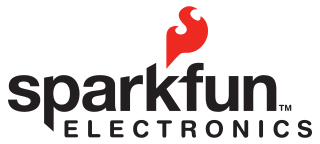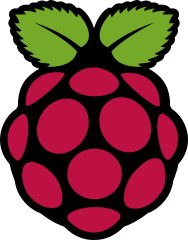Homebrew Computer Club
The Homebrew Computer Club was an early computer hobbyist group started by Gordon French and Fred Moore in Menlo Park, California, which met from March 1975 to December 1986. The club played an influential role in the development of the microcomputer revolution and the rise of that aspect of the Silicon Valley information technology industrial complex.
SparkFun
SparkFun Electronics was founded by Nathan Seidle, then a student at the University of Colorado Boulder, in 2003. During the Open Source Hardware summit in October 2010, SparkFun was one of the contributors in drafting the first OSHW definition. All products designed and produced by SparkFun are released as Open-source hardware (OSHW), with schematics, EAGLE files, and datasheets posted on each product page.

Arduino
The Arduino project began in 2005 as a tool for students at the Interaction Design Institute Ivrea in Italy. In 2003, Hernando Barragán created the development platform Wiring as a Master's thesis project at IDII, under the supervision of Massimo Banzi and Casey Reas. The project goal was to create simple, low cost tools for creating digital projects by non-engineers. In 2005, Massimo Banzi, with David Mellis, another IDII student, and David Cuartielles, extended Wiring by adding support for the cheaper ATmega8 microcontroller. The new project was called Arduino.

RepRap
RepRap was founded in 2005 by Dr Adrian Bowyer from the University of Bath in England. The goal was to develop a low-cost 3D printer that can print most of its own components, but it is now made up of hundreds of collaborators worldwide. RepRap is short for replicating rapid prototyper. As an open design, all of the designs produced by the project are released under a free software license, the GNU General Public License.

One Laptop per Child
One Laptop per Child (OLPC) was a non-profit initiative established with the goal of transforming education for children around the world; this goal was to be achieved by creating and distributing educational devices for the developing world, and by creating software and content for those devices. The OLPC was by Nicholas Negroponte and Seymour Papert while at the MIT Media Lab.

Make:
Make: is an American magazine focused on Do It Yourself (DIY) projects involving computers, electronics, metalworking, robotics, woodworking and other disciplines. Make: was founded by Dale Dougherty in 2005 and is considered a pioneer in the maker movement.

Adafruit

Industries is an open-source hardware company founded by Limor Fried, then a student at Massachusetts Institute of Technology, in 2005. The company designs, manufactures and sells a number of electronics products, electronics components, tools and accessories.
BeagleBoard
The BeagleBoard is a low-power open-source single-board computer produced by Texas Instruments in association with Digi-Key and Newark element14. The board was developed by a small team of engineers as an educational board that could be used in colleges around the world to teach open source hardware and software capabilities. It is also sold to the public under the Creative Commons share-alike license.

Raspberry Pi
Eben Upton, Rob Mullins, Jack Lang and Alan Mycroft from the University of Cambridge started developing a tiny and affordable computer for their students. In 2008, the team started a collaboration with Pete Lomas and David Braben and formed the Raspberry Pi Foundation the subsequent year. Three years later, the Raspberry Pi Model B was born, selling over two million units within two years of mass production.

Linaro
The founding of Linaro was announced at Computex in June 2010 by Arm, Freescale Semiconductor, IBM, Samsung, ST-Ericsson, and Texas Instruments in a joint press conference. Linaro was formed to provide ”new resources and industry alignment for open source software developers using Linux on the world’s most sophisticated semiconductor System-on-Chips (SoCs).”
RISC-V
RISC-V is an open standard instruction set architecture (ISA) based on established reduced instruction set computer (RISC) principles. Unlike most other ISA designs, the RISC-V ISA is provided under open source licenses that do not require fees to use. A number of companies are offering or have announced RISC-V hardware, open source operating systems with RISC-V support are available and the instruction set is supported in several popular software toolchains.
The project began in 2010 by Krste Asanović and David Patterson at the University of California, Berkeley. The RISC-V Foundation was founded in 2015 to build an open, collaborative community of software and hardware innovators based on the RISC-V ISA.

Open Source Hardware Association
The Open Source Hardware Association (OSHWA) was established as an organization in June 2012 by engineer Alicia Gibb, who had been working on the Open Hardware Summit. The OSHWA is a non-profit organization that advocates for open-source hardware.
